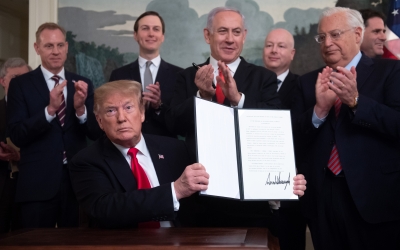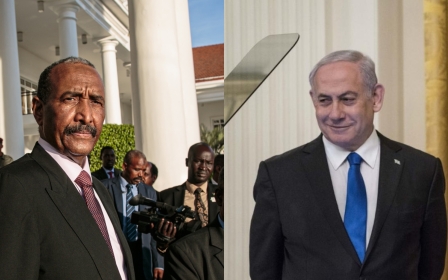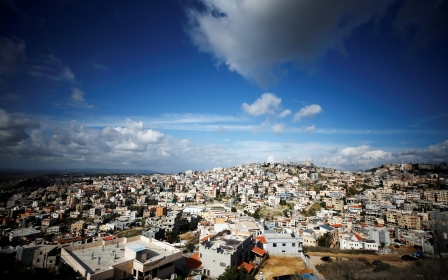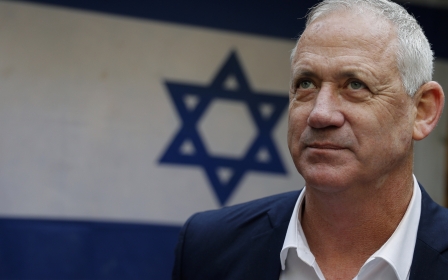Israel's March election set to change nothing, new poll indicates

A third election on 2 March may do nothing to change the political landscape in Israel, with rival parties set to gain nearly the same number of seats, according to an early poll.
Israeli Prime Minister Benjamin Netanyahu’s Likud party would win 34 seats, two seats extra since the last election in September, a joint Yisrael Hayom and i24NEWS survey shows.
Meanwhile, its main challenger, the Blue and White party of former army chief Benny Gantz, looks set to gain 36, three more than September's election.
The voter turnout is predicted at 56 percent.
Netanyahu is not only fighting for his political survival but his freedom, as he is currently facing corruption charges in which he could face a maximum sentence of 10 years in prison if found guilty.
New MEE newsletter: Jerusalem Dispatch
Sign up to get the latest insights and analysis on Israel-Palestine, alongside Turkey Unpacked and other MEE newsletters
Despite US President Donald Trump endorsing Netanyahu’s government on several occasions, votes for Netanyahu’s Likud appear to fall short of giving him enough seats to form a government alongside the far-right and Ultra-Orthodox parties.
Elections in April and September both proved inconclusive, and March's will be the third in a year. Results such as this poll's will raise expectations of yet another election.
Netanyahu tried to boost his profile in recent weeks, including travelling to Washington to stand next to Trump while he announced the so-called "deal of the century" plan to address the Israel-Palestine conflict.
Despite being hugely favourable to Israel and paving the way for the Israeli annexation of huge areas of the occupied West Bank, Trump's plan appears to have had little effect on Israelis' voting intentions. Gantz was invited to the White House, too, ahead of the plan's release, though only Netanyahu stood beside the president at the launch.
From Washington, Netanyahu travelled to Moscow where he lobbied President Vladimir Putin to release an Israeli backpacker arrested in Russia on drug charges. He then met with Sudan's leader on Monday in Uganda, where they discussed the normalisation of ties.
The lastest poll, however, indicates that Blue and White will emerge as the largest party in Israel's parliament, the Knesset.
A majority of respondents said they favoured a national unity government combining Likud and Blue and White. However, Gantz has insisted his party cannot form a government with a party that has an indicted Netanyahu at its helm.
Meanwhile, the poll put Ultra-Orthodox parties Shas and United Torah Judaism on eight and seven seats, respectively. The religious-nationalist New Right of Defence Minister Naftali Bennet and Ayelet Shaked, the ex-justice minister, is set for eight MPs.
Overall, the right-wing bloc is predicted to win 57 seats, four short of the 61-seat majority needed to govern.
In the so-called left bloc, the Joint List, a political alliance that represents Palestinian citizens of Israel, is on course to maintain its 13 seats and remain the third-largest party after Blue and White and Likud.
Then comes Labor-Gesher and Meretz with eight seats.
Labor-Gesher leader Amir Peretz and Meretz chairman Nitzan Horowitz have merged their parties and are running on one ticket. For Israel's first few decades, Labor was the country's dominant party, but its support has severely diminished in recent years.
Avigdor Lieberman's Yisrael Beiteinu party, which has had the opportunity to play kingmaker in Israel's last two elections but prompted repeat polls instead, would drop two seats, winning only six.
Middle East Eye delivers independent and unrivalled coverage and analysis of the Middle East, North Africa and beyond. To learn more about republishing this content and the associated fees, please fill out this form. More about MEE can be found here.





